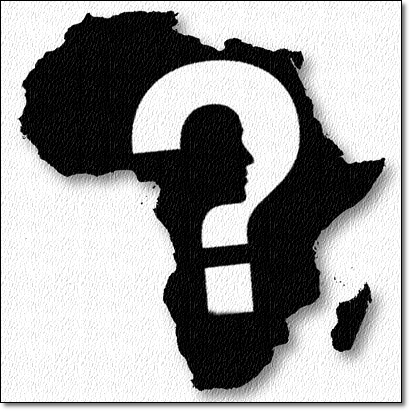Who is an African?
Published on 30th September 2014

 |
The above are some of the questions one confronts when trying to empirically delineate the African.
For some, the African is simply a racial category - a Black man with certain Bantu features. But this classificatory scheme often poses more questions than it answers. Let us for instance assume that a Caucasian English police officer described the scene of a crime thus: “At the scene of the crime were four Africans and four white boys.” What kinds of images come to our mind to differentiate the four ‘Africans’ from the four White boys? If the same police officer changes the description to: “There were four Black men and four White boys at the scene of the crime,” what sorts of imageries come to our mind? Or better put, what sorts of imageries do we think he is trying to convey?
It would seem that the use of ‘African’ is much narrower than the use of ‘Black’ because our hypothetical Caucasian police officer would most likely think of Africans as being different from Black Caribbean, Black Guyanese or African-Americans even though they are all generically called Blacks. This analogy suggests that while race does matter as an organising category in identifying the African, it would be inadequate in properly differentiating, in the Western imagination at least, who is an African from who is Black.
Again if we use race alone in the delineation of the African, a legitimate question is raised about non-Blacks with African citizenship, say, the White South Africans, who never knew any other country but South Africa. Are they Africans?
Some have tried to use territoriality to define the African. For those who adopt this perspective, all it takes will be to look at the map of the world and categorise all who were born in the continent of Africa or who hold the citizenship of one of the countries that make up the continent, or has ancestry in the continent, as African. This option however has equally a number of problems. For example, if we choose to call all who have ‘African’ ancestry Africans, how far back in time should we go? This perspective also wrongly assumes that all who are citizens of the countries that make up the continent of Africa accept that they are ‘Africans.’ Even within sub-Saharan Africa, sections of countries like Somalia, Mauritania, Niger and Sudan would prefer to be called Arabs, not Africans.
There are also those who believe that consciousness of being an African, or commitment to the cause of Africa should be the only or main criterion for delineating who the African is. This form of classification is quite popular with the remnants of the African ideological left and those eager to wear the toga of universalism and cosmopolitanism. One of the weaknesses of this classificatory scheme however is that it is so fluid that any one expressing any sort of interest in African affairs could, by this definition, legitimately claim to be an African. For instance is Tony Blair, who as Prime Minister of Britain, said that Africa was a scar on the consciousness of the world, and felt moved enough to set up the Commission for Africa, an African by this definition? Besides, using consciousness to delineate the African could end up de-Africanising a majority of the people who non-Africans will commonly identify as Africans. Does for instance the village Igbo or Yoruba or Hausa woman in Nigeria have any consciousness of being an African? If, as is commonly believed, such a consciousness is non-existent, or at best insipient, does that then imply that such people are not Africans?
Eminent African political scientist Professor Ali Mazrui made a distinction between “Africans of the blood and Africans of the soil.” For him, Africans of the blood are defined in racial and genealogical terms. They are identified with the black race while Africans of the soil are defined in geographical terms. For Mazrui therefore, both territoriality and race should be used simultaneously in identifying the African. A major problem with this view however is that it seems to imply a hierarchy of Africans since someone who is both an African of the blood and an African of the soil could legitimately claim a higher ranking than those who have fewer attributes such as those who are only Africans of the soil or of the blood.
More than the controversial question of who is an African, are the implications of the contentious nature of African identity for the continent’s unity project and development trajectory? Fortunately they are many who believe that despite these challenges, there are sufficient grounds for optimism. These grounds include the rise of new economic powers – Brazil, China, India and Russia- which are increasingly looking upon Africa as the next big destination, the apparent deepening of democratic ethos in the continent, which could lead to a weakening of the fissiparous tendencies that underlie the various notions of Africanity, and the emergence of Barrack Obama as the 44th President of the United States of America.
For many Africans Obama is both an African name they can relate to, and a metaphor expressing that anything is possible if you strive hard for it with the ‘right attitude.’ It is believed that this ‘right attitude’ is an attitude that is post-chauvinism, for it is only by being post-racial and a reconciler that a Blackman, with an African Muslim father, who was not born into privilege, could emerge president of the most powerful country in the world. This lesson is not lost on Africans and it is a powerful boost to the African unity project.
By Jideofor Adibe, PhD, LLM
pcjadibe@yahoo.com
Jideofor is the author of the book: Who is an African? Identity, Citizenship and the Making of the Africa-Nation, published by Adonis & Abbey Publishers (http://www.adonis-abbey.com/)
